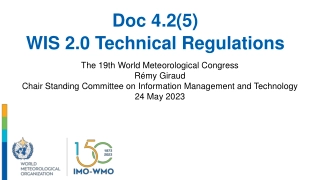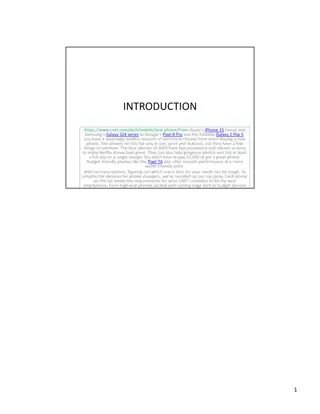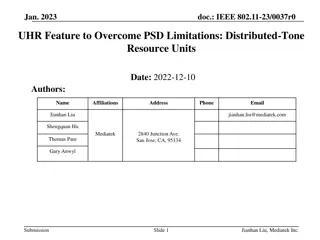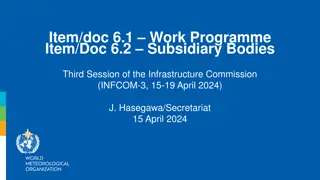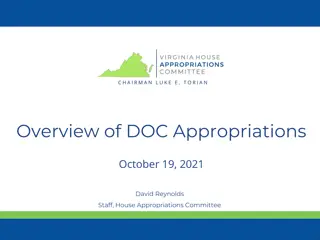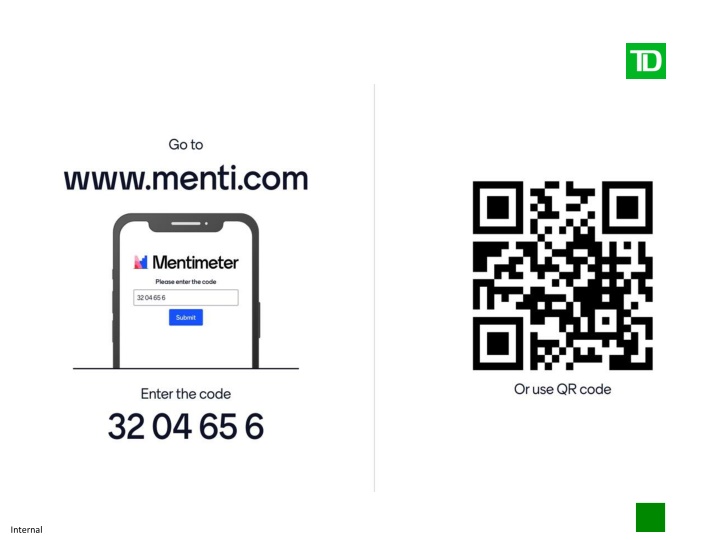
Breaking the Paycheck Cycle - Money Management Strategies and Budgeting Tips
"Learn effective money management strategies, budgeting tips, and how to break the paycheck-to-paycheck cycle. Identify your monthly budget items, create a budget, and plan for short and long-term financial needs. Take action to improve your financial situation today!"
Download Presentation

Please find below an Image/Link to download the presentation.
The content on the website is provided AS IS for your information and personal use only. It may not be sold, licensed, or shared on other websites without obtaining consent from the author. If you encounter any issues during the download, it is possible that the publisher has removed the file from their server.
You are allowed to download the files provided on this website for personal or commercial use, subject to the condition that they are used lawfully. All files are the property of their respective owners.
The content on the website is provided AS IS for your information and personal use only. It may not be sold, licensed, or shared on other websites without obtaining consent from the author.
E N D
Presentation Transcript
Breaking the Paycheck Paycheck Cycle 02-04-2021 Presented by: Bimpe M. Dada Internal
Seminar Objectives Money Management Strategies Identify your monthly budget items both fixed and variable Creating a Budget Design a budget to help manage your spending and work to eliminate debt Budget Action Planning Learn how to make smart spending decisions 3 Internal
Breaking the Cycle Trap Why some people face financial challenges: Ineffective money management skills Caught in the cycle of living paycheck to paycheck Bad spending decisions 4 Internal
Money Management Strategies Know where your money is going BEFORE your paycheck comes. Have a budget PLAN! Look at short term needs and plan for long-term needs and wants. Create an emergency fund for those hiccup times. Invest in your future Retirement. 5 Internal
Creating a Budget Let s start with an activity to see how we track our spending and how we create a budget. Tip: Carry a notebook to note what you ve spent each day, then update your tracking sheet. This will help identify areas to reduce spending and redirect your money; like towards debt or savings 6 Internal
Expenses > Income? Eliminate unnecessary expenses Adjust spending as needed Seek out new sources of income Tip: Be clear on your needs and wants!!! 7 Internal
Budget Action Planning Step 1: List your sources of income Step 2: Track your expenses Step 3: Find out if you Saved or Overspent Step 4: Evaluate your financial situation Step 5: Review your budget regularly Take the Budget Action Planning worksheet home with you as "homework"! 8 Internal
Credit Card / Credit - Good to Knows TIP: It pays to be responsible 9 Internal
Resources Websites Books TD Bank Finance 101: www.tdbank.com/financialeducation Beyond Paycheck to Paycheck by Michael Rubin Free Credit Report: www.annualcreditreport.com Financial Peace University by Dave Ramsey Suze Orman: www.suzeorman.com 10 Internal
Questions? FinancialEducation@td.com Internal

